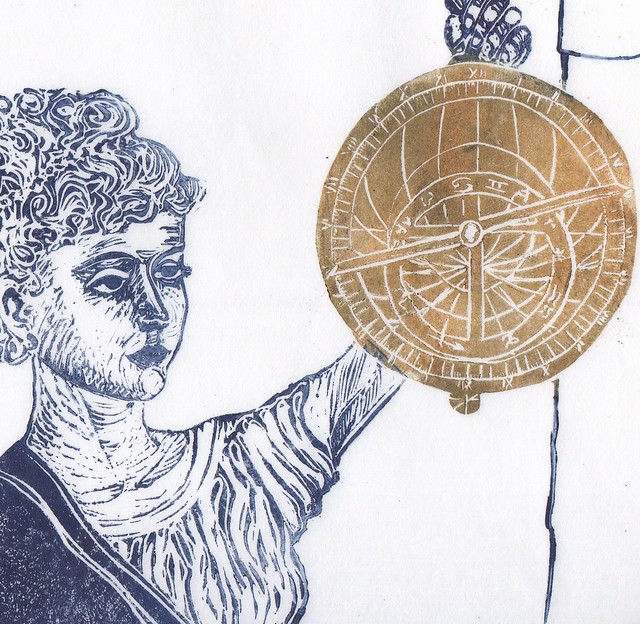to be a well-known and respected philosopher and scientist throughout Egypt. Some historians
believe that Theon wanted to raise the perfect human. It is apparent that she had developed a
passion for mathematics and sciences. Most historians are certain that Hypatia surpassed Theon’s
knowledge at a young age. Her father also taught her the fundamentals of teaching so that she
became a very enticing orator.
Hypatia studied astrology, astronomy and mathematics. She was later credited by her
students of inventing the astrolabe. However this is very unlikely because the astrolabe was
dated a few centuries earlier. Historians believe she merely promoted the astrolabe’s use. In
addition, she studied conic sections, which were introduced by Apollonius. She wrote a book
called On the Conics of Apollonius. She was credited introducing ideas of ellipses, hyperbolas,
and parabolas.
Hypatia with Astrolabe (the astrolabe
was used by astronomers, navigators, and astrologers, to find the time, place, and
positions of constellations in the sky)
Riots frequently broke out between the different religious sects. Two leaders were opposing
each other, Cyril and Orestes. Hypatia, who happened to be a good friend of Orestes, was
unfortunately involved. Cyril spread nasty rumors about her. In 415 AD, a violent mob attacked
Hypatia on her way home. They apparently stripped her and killed her with shards of pottery,
then dragged her through the streets.
At this time Hypatia was one of many persecuted by the Christians, because she was
pagan. The Christians persecuted the pagans persecuted as much as the pagans persecuted them.
However not all Christians did this. Some were ambivalent and did not care. This example shows
how the Christians behaved when the tables were turned on the pagans.
Bibliography:
http://www-groups.dcs.st-and.ac.uk/history/Mathematicians/Hypatia.html
http://www.agnesscott.edu/lriddle/women/hypatia.htm
http://www.astr.ua.edu/4000WS/HYPATIA.html
http://www.heretication.info/_pagans.html

No comments:
Post a Comment